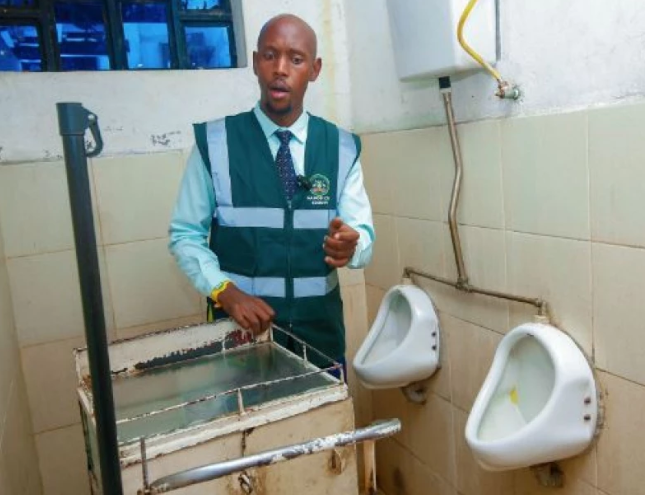A recent crackdown on food safety has uncovered alarming practices involving “smocha” trolleys—popular Kenyan street food vendors selling Smokies, kebabs, and boiled eggs wrapped in chapati—stored in public toilets along Thika Road.
Geoffrey Mosiria, Nairobi County’s Environment Chief Officer, made the disturbing discovery on Wednesday night after receiving a tip-off from concerned citizens about potential health risks posed by the unsanitary storage conditions. This revelation has sparked significant public health concerns, prompting authorities to take swift action and pledge to hold those responsible accountable.
“I want to thank the person who discreetly reported the disturbing practice of storing food trolleys and other foodstuffs in a public toilet along Thika Road, specifically at the KEHNA toilets,” Mosiria posted on his X page. He confronted the toilet’s manager about allowing vendors to store their trolleys in such unhygienic conditions, emphasizing that this should never be tolerated.
“The hygiene standards we observed here are alarming,” he stated. “Food meant for human consumption should never be stored in such conditions. The risk of contamination is extremely high, and this practice could lead to the spread of foodborne illnesses.”
The vendors, who typically operate late into the night, reportedly use these public toilets as makeshift storage for their trolleys overnight. This incident follows a recent discovery by Mosiria and city council officers of several trolleys hidden in back alleys and poorly ventilated storerooms within Nairobi’s Central Business District (CBD), raising similar concerns about food safety and hygiene practices.
Trolley vending foods have become immensely popular across Kenyan cities, known for their affordability and convenience, snacks like “smocha” are favoured by commuters, students, and late-night workers looking for a quick and cheap bite.
However, the rising demand for these street foods has also brought to light issues around hygiene and food safety, especially in densely populated areas where proper storage facilities are limited.
Authorities are now taking steps to address these concerns, as consumers have been urged to be vigilant and mindful of where they purchase street food, while vendors are encouraged to prioritize cleanliness to avoid such risks.



